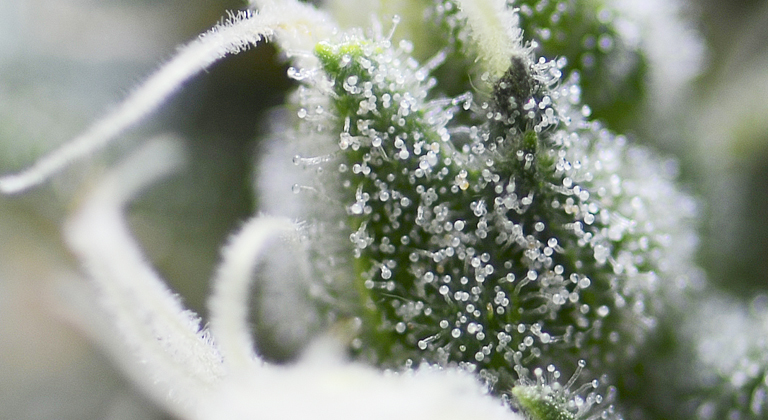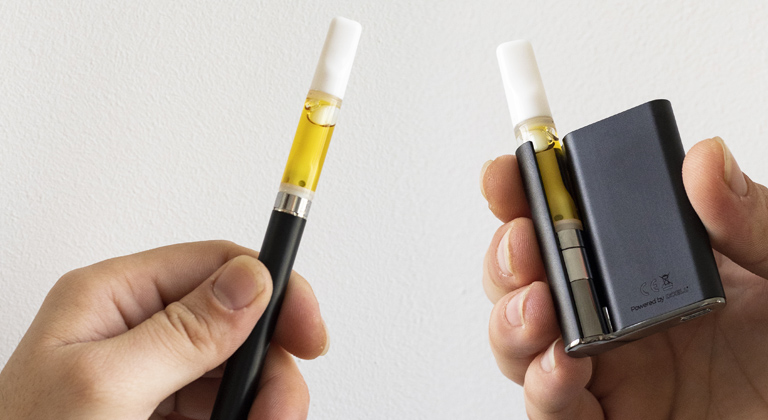Gipsy Haze is a cannabis strain from Eva Seeds seed bank that has earned a place among the most discerning of cannabis connoisseurs for its exceptional traits. Recognized for its aromatic profile and effects, as well as being a Haze-type strain with a very short flowering period (just 8 to 9 weeks), this strain provides consumers and growers with an unparalleled experience.
In this article, we dive into the heart of its aromatic essence to discover what makes it so special.
History of the Gipsy Haze cannabis strain
When the breeders at the Eva Seeds seed bank began the breeding process to give way to Gipsy Haze, they had a very clear goal: to create a Haze-type cannabis strain with a shorter flowering period than usual, allowing growers from all regions to successfully reach harvest.
Perhaps what the technical team did not expect was that, in addition to this remarkable characteristic, this new hybrid would also have a very special terpene profile that would delight the most experienced of taste buds.
What genetics does the Gipsy Haze cannabis strain contain?
The Gipsy Haze strain is the result of crossing legendary plants: Jack Herer x (Black Domina x Space Bomb). This genetic alchemy resulted in a strain that combines the best of its parents. Eva Seeds has invested years of research, breeding, and selection to obtain a strain that has quickly positioned itself among the favorites of many enthusiasts and experts.
Lovers of classic Haze-type strains like Super Lemon Haze or Amnesia Haze appreciate this strain for maintaining those exotic Haze aromas in a faster flowering time than usual.
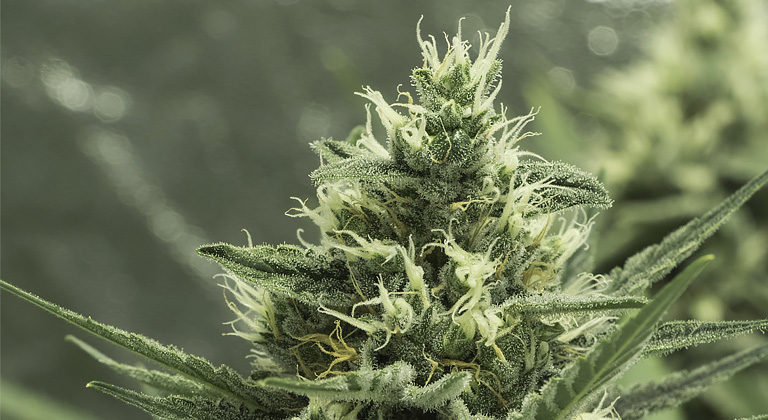
The Flavor and Aroma of Gipsy Haze
Gipsy Haze offers an extraordinary experience thanks to the combination found in its terpene profile, an interesting blend that we’ll explain below.
Many consider this strain a delight for the senses, especially when it comes to its aromatic profile and flavor: a characteristic Haze taste that many connoisseurs appreciate. However, Gipsy Haze has its own distinctive twist.
With a notable citric presence similar to lime, this strain has a special hint that brings out a lively freshness and complements the sweet fruity aftertaste. Notes of mango are another dominant element, marked nuances that contribute an enriching tropical flavor.
Additionally, you’ll notice a sweet hint that isn’t overwhelming but rather a subtle evocation of delicious fruit. To round out and balance these fruity and citrusy notes, there’s a faint hint of incense. It’s definitely a very good representation of Haze-type strains.
Overall, Gipsy Haze offers a masterful balance between freshness, fruity sweetness, and incense tones, resulting in a clearly distinctive and highly appreciated aroma and taste.
What terpenes does Gipsy Haze contain?
When we analyze the terpene profile of the Gipsy Haze cannabis strain, we’re pleasantly surprised to discover which terpenes it contains. Laboratory results revealed that the terpene Terpinolene is the most abundant in the strain, followed by Caryophyllene, which is positioned just behind in terms of abundance, contributing its unique characteristics to the profile.
Complementing this duo, we find a variety of additional major terpenes that, although in smaller amounts, are no less important: Myrcene, Pinene, Limonene, Linalool, Terpinol, and Cymene, enriching the composition and contributing significantly to the balance and complexity of Gipsy Haze’s aroma and taste.
While these terpenes may not be as abundant as Terpinolene and Caryophyllene within the profile of this strain, their combination and presence are crucial to achieving its distinctive essence. Moreover, they not only influence the strain’s characteristics but also offer therapeutic properties that are valued by many consumers.
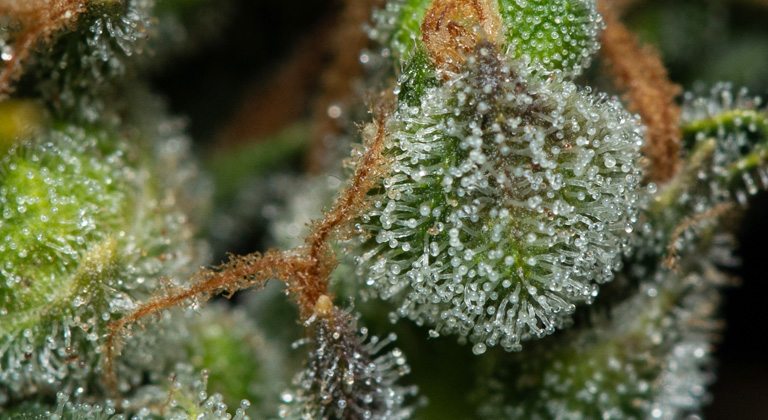
Therapeutic properties of the main terpenes in Gipsy Haze
Let’s delve into the aroma and properties of the two terpenes found in greater quantities in Gipsy Haze, as they are two molecules that are very interesting both in terms of aspect and therapeutic effects.
Terpinolene
Terpinolene is one of the most intriguing terpenes present in cannabis. Unlike others, such as Myrcene, it’s less common and is not found in large quantities in most strains. However, it’s abundant in “Haze” strains. Gipsy Haze is a representative strain of this genetic type, similar to Holy Grail Kush, which cannabis enthusiasts often describe as “Kush-type.”
Flavor and aroma of terpinolene: This aromatic compound is known for its fresh and complex tones, similar to citrus, flowers, and occasionally a slight hint of apple. It can also have herbal and piney undertones, giving it an interesting aroma reminiscent of a forest in the spring. This terpene provides subtleties resembling lemon and lavender, providing an aromatic experience that can be both revitalizing and relaxing.
Effects and therapeutic properties of terpinolene: Although there is still much research to be done, some studies have linked terpinolene to various therapeutic properties:
- Sedative: It’s been shown to have a slightly narcotic or relaxing effect, which could be useful for people with insomnia or sleep issues.
- Antioxidant: This terpene possesses properties that help combat free radicals, unstable molecules that can damage cells.
- Antimicrobial and antibacterial properties.
Caryophyllene
The second most abundant terpene in the profile of Gipsy Haze is Caryophyllene, a molecule with many properties commonly present in the aromatic composition of cannabis plants.
In the plant kingdom, Caryophyllene plays a vital role as a natural protector against fungi and insects, ensuring that the plant remains healthy and free of pathogens.
However, this terpene also has properties that can be very useful therapeutically for humans:
- Anti-inflammatory properties: Like other terpenes, such as Myrcene and Pinene, Caryophyllene modulates the signaling mechanism of prostaglandins, which are cellular mediators in various functions.
- Interaction with the endocannabinoid system: Surprisingly, this terpene is the only one that acts on the CB2 cannabinoid receptor in our body, being one of the few non-cannabinoid compounds known to emulate their action.
- Analgesic properties: Research has indicated the ability of beta-caryophyllene to relieve pain, being used, for example, in conditions such as dermatitis.
- Antifungal effect: Through various studies, it has been found that Caryophyllene is effective in combating certain types of fungi.
Additionally, Caryophyllene stands out for its anticoagulant functions, aiding blood circulation, and also providing protection to the digestive cellular system. Notably, there is evidence suggesting that beta-caryophyllene could be beneficial in the management and relief of anxiety or depressive states.
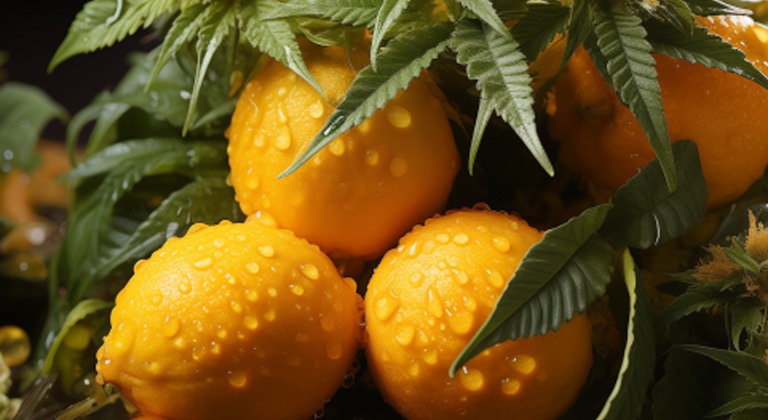
Other terpenes present in the Gipsy Haze profile
As mentioned earlier, the terpene profile of this strain also includes other molecules that, while present in smaller quantities, are relevant both aromatically and therapeutically:
- Myrcene: Known for its sedative effect, can also increase the permeability of the blood-brain barrier, enhancing the bioavailability of cannabinoids.
- Pinene: Possesses anti-inflammatory properties and has traditionally been used to improve memory and concentration. It also acts as a bronchodilator, which can be useful for those with asthma.
- Limonene: Often associated with mood elevation and stress relief, it’s also demonstrated antifungal and antibacterial properties.
- Linalool: Recognized for its sedative and anxiolytic properties, this terpene is traditionally used in aromatherapy to treat anxiety and insomnia.
- Terpinol: Like Linalool, it has been associated with sedative and relaxing properties.
- Cymene: Possesses anti-inflammatory and antioxidant properties.
The effects of Gipsy Haze
Gipsy Haze’s Terpene Profile does not act in isolation, as terpenes themselves do not have psychoactive effects, although they can produce other effects such as anxiolytic, relaxing, energizing effects etc.
However, when terpenes are combined with cannabinoids, the so-called “entourage effect” occurs — a synergy among all compounds in which terpenes, like those present in Gipsy Haze, and cannabinoids, interact and mutually enhance their effects and properties.
When referring to cannabis-derived products, such as flowers, extracts, or tinctures containing cannabinoids, this cooperation becomes essential. Terpenes have the unique ability to influence and modulate how cannabinoids interact with our endocannabinoid system, altering, enhancing, or even reducing their effects.
Gipsy Haze, in particular, has the characteristic of providing a vibrant and invigorating sensation. Users often report an elevated mood, accompanied by a wave of euphoria and an increase in creative capacity. These characteristics make it ideal not only for those seeking a boost in creativity and energy but also for those looking to improve their mood or find relief from certain pain.
What do you think of this post? Are you also a fan of Gipsy Haze? Leave your comment below and share your opinion with the community!
Cali Terpenes

